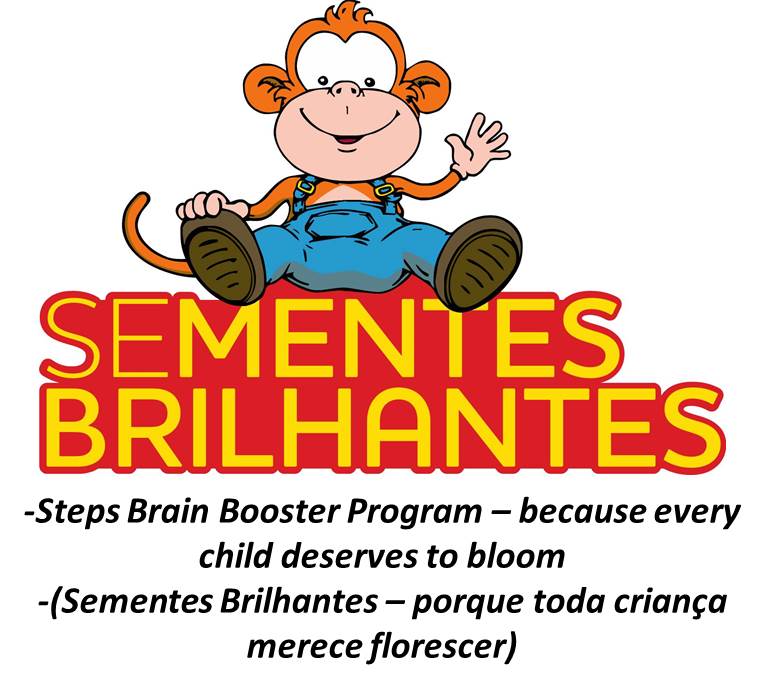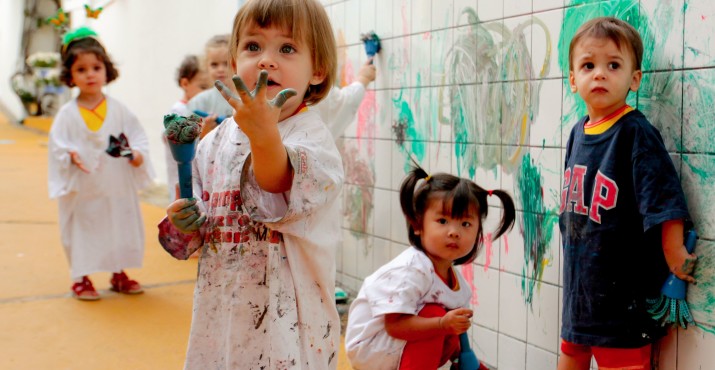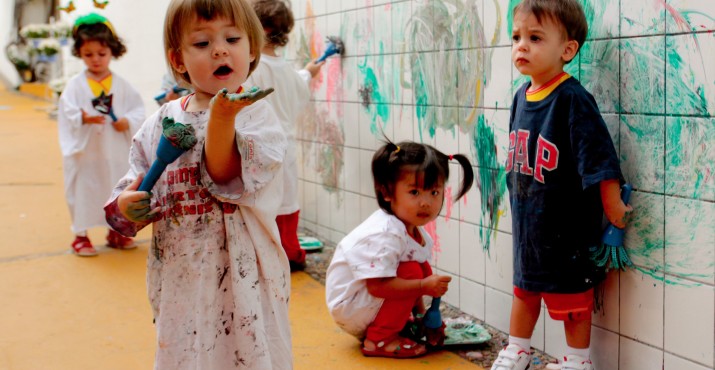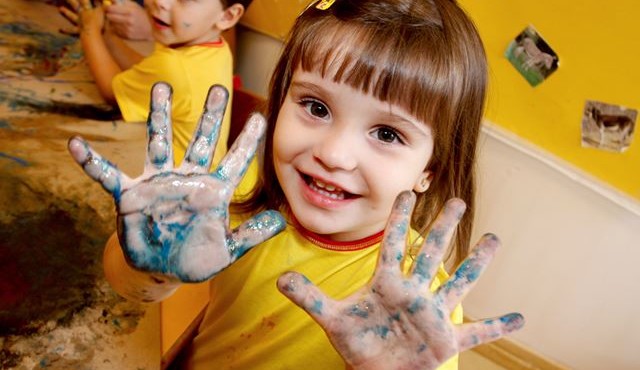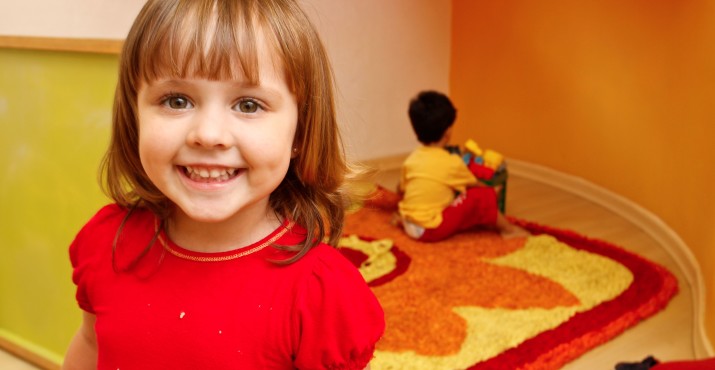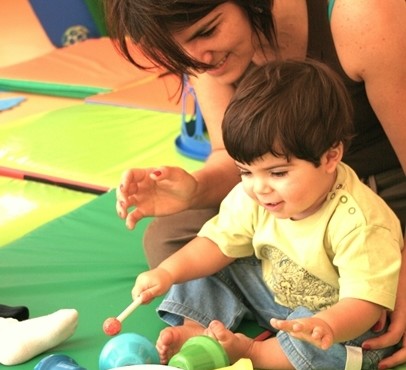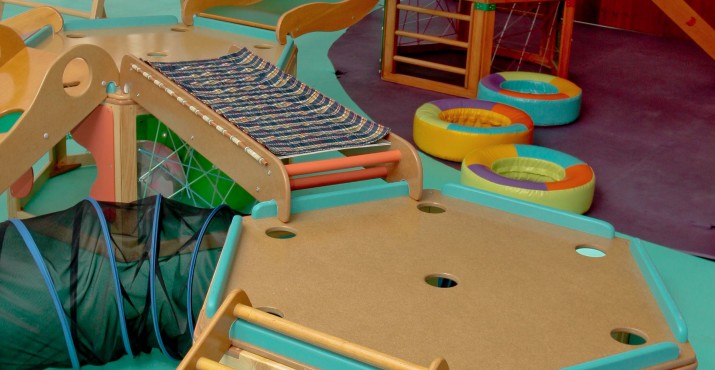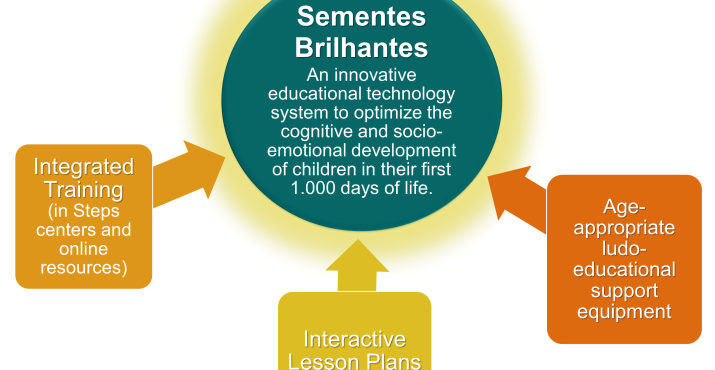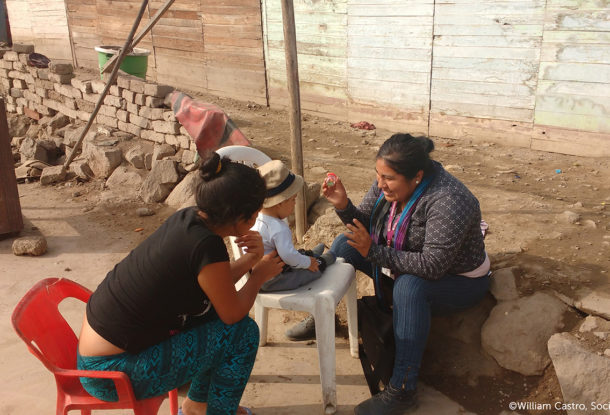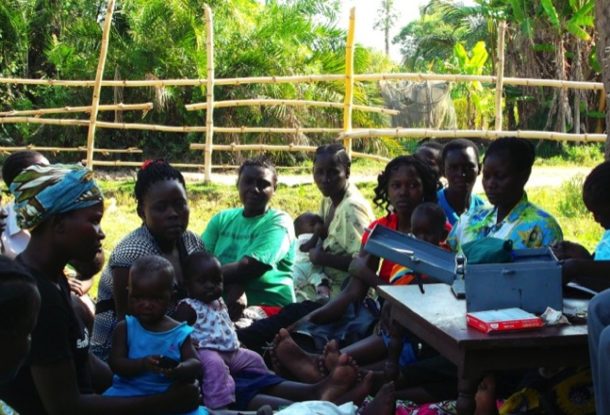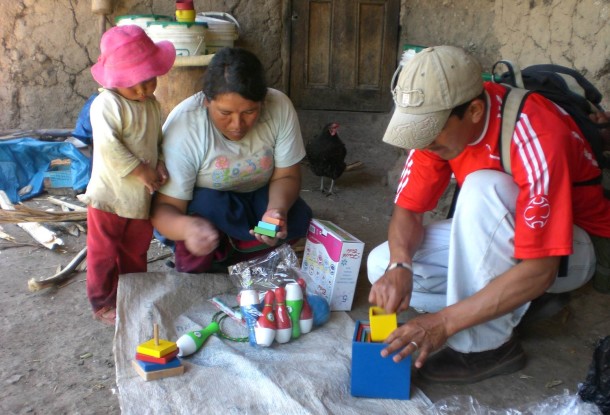Innovation Summary
- Studies show that social inequalities begin in early childhood. At the age of 4, we can already detect large differences in the cognitive development between children in different social classes [1].
- Adequate stimulation in the first 1,000 days of a child´s life diminishes poverty, violence, and health problems in the future [2]
- Children up to the age of 4 in areas of less favorable economic conditions in Brazil are cared for by people who lack the necessary qualification and support systems to adequately stimulate these children in this crucial period of cognitive formation.
The goal of The Steps Brain Booster Program (Sementes Brihantes; SBBP) is to offer quality stimulation activities and training and support equipment to enable caretakers to provide adequate stimulation to children 0-4 years in areas of high social vulnerability. The program consists of 3 multi-disciplinary extra-curricular modules/equipment (Psychomotricity, Music Sensitivity and Artful Expression) developed by Steps child development specialists to stimulate the cognitive, socio-emotional functions of the brain. When conducted weekly in an integrated manner, they stimulate neural pathways in the prefrontal cortex, forming “building blocks” for improved cognitive function.
Gallery
Impact
Expected Impact:
- 220 children ages 1-3 will participate across 3 implementation sites, 173 of which will actively participate in the activities proposed be in the intervention group
- 26 caretakers will directly participate in the training program.
- 87 (50%) of the children in the intervention group are expected to significantly improve cognitive, motor, language and socio-emotional development.
“Boosting” the brain of a baby in his first 1,000 days, can unlock his potential for the rest of his life. Imagine how much human potential we could unlock if all babies just had that chance.
-Glaucia Paula Maciel, Project Lead
Innovation
The SBBP aims to offer quality training in stimulation activities and adequate equipment to caretakers in areas of high social vulnerability. It consists of 3 multi-disciplinary extra-curricular modules/equipment developed by Steps child development specialists to stimulate the cognitive, socio-emotional functions of the brain:
1) Psychomotricity”: circuit-based classes focusing on developing gross/fine motor skills, muscle tone, flexibility, rhythm, balance, coordination, tactile stimulation, agility, laterality and body awareness.
2) “Music Sensitivity”: a range of experiences that stimulate sensory perception, language acquisition, listening skills, rhythmic exploration, time-space notion and socio-emotional equilibrium.
3) “Artful Thinking”: classes that stimulate sensory exploration, concept development, social skills, language development, cause & effect, visual memory and tactile discrimination.
SBBP is not only innovative in its content/equipment, but also in its delivery. It can be conducted by a caretaker with minimal qualification, trained by the Steps team with the help of visual manuals and online resources. The SBBP kit includes over 50 motor skill circuits, physical therapy equipment, varied toys, musical instruments and differentiated art material and is within the public school budget.
Collaboration
Funders:
- Saving Brains Partners
- Fundação Itau Social – Brazil
Key Partners:
- Steps Baby Lounge – Brazil
- Guidecraft – USA
- Oficina do Brincar – Brazil
Implementation
Expected drivers:
- Quality of staff training
- Ease-of-use of lesson plans and support equipment
- Accessible cost of SBBP kit
- Logistics of the delivery system
Continuation
The SBBP program can be replicated not only in formal educational settings (such as in this pilot test), but also scaled to other non-formal educational settings such as community health centers, local community parent support facilities and public recreational clubs.
Evaluation Methods
The intervention will be implemented in two day-care centers during 12 months. In one of the centers, the Steps team will monitor the activities weekly while in the other there will be monthly visits by the Steps team. A third day care center will serve as a control group and will not receive the intervention. Before the intervention, two baseline measurements will be conducted in order to later assess the child developmental growth in all three day-care centers. This will help ensure that post-treatment development and growth is attributable to the intervention itself. A differences-in-differences strategy will be used to compare the results of interventions and control day-care centers before and after the start of the intervention. Physical, cognitive, language (expressive and receptive), and socio-emotional changes will be measured in children at regular, 3 month intervals for a 12 months period after starting the intervention to verify the project impact pathway over time.
Impact of Innovation
Cost:
The objective is to develop the SBBP at a deliverable cost of under US $10,000.00 per school/annum. Each kit can be used by 300 children (10 groups) from 1 to 4 years of age, once a week, for 48 weeks. This is within the budget currently allocated by public schools for extra-curricular and professional training purposes. Considering that improving child development has long term consequences, the intervention is expected to be highly cost-effective.
References
- Source: Aprendizagem Infantil: Uma abordagem da neurociência, economia e psicologia cognitiva / Aloisio Pessoa de Araújo, coordenador – Rio de Janeiro, Academia Brasileira de Ciências, 2011
- Source: Fundamentos do Desenvolvimento Infantil da Gestação aos 3 anos. Fundação Maria Cecilia Souto Vidigal, 2011
Resources
-
Research
-
SEARCH Barros, R.; Carvalho, M.; Franco, S.; Mendonça, R.; e Rosalém, A. (2011). Uma avaliação do impacto da qualidade da creche no desenvolvimento infantil. Pesquisa e Planejamento Econômico, v. 41, n. 2.
-
Campos, M.; Behring, E.; Esposito, Y.; Gimenes, N.; Abuchain, B.; Valle, R.; e Unbehaum, S. (2011). A Contribuição da educação infantil de qualidade e seus impactos no início do ensino fundamental. Educação e Pesquisa v. 37, n. 1: p. 15-33.
-
Capovilla, F. C.; Negrão, V. B.; E Damázio, M. (2011). Teste de Vocabulário Auditivo e Teste de Vocabulário Expressivo: Validados e normatizados para o desenvolvimento da compreensão da fala dos 18 meses aos 6 anos de idade. São Paulo: Memnon.
-
Cunha, F.; Heckman, J.; Lochner, L.; e Masterov, D. (2006). Interpreting the evidence on life cycle skill information. In: HANUSHEK, E.; WELCH, F. (Ed.). The handbook of economics of education. cap. 12, p. 697-812.
-
Duarte, C. P. (2009). Caracterização do Perfil Cognitivo e Avaliação da Memória de Trabalho na Síndrome de Down. Dissertação (Mestrado em Distúrbios do Desenvolvimento). Universidade Presbiteriana Mackenzie, São Paulo.
-
Dunn, L. M.; Padilla, E. R.; Lugo, D. E.; e Dunn, L. M. (1986). Test de Vocabulario en Imagenes Peabody: TVIP: Adaptacion Hispanoamericana (Peabody Picture Vocabulary Test: PPVT: Hispanic-American Adaptation). Circle Pines, MN: American Guidance Service (AGS), Inc.
-
Gerstadt, C.L., Hong, Y.J., & Diamond, A. (1994). The relationship between cognition and action: Performance of children 3 1/2-7 years old on a Stroop-like day-night test. Cognition, 53, 129-153.
-
Harms, T.; Cryer, D.; e Clifford, R. M. (2004). Early Childhood Environment Rating Scale-revised. New York: Teachers College Press.
-
Harms, T.; Cryer, D.; e Clifford, R. M. (2006). Infant/toddler environment rating scale-revised. New York: Teachers College Press.
-
Janus, M., Brinkman, S., Duku, E., Hertzman, C., Santos, R., Sayers, M.,. & Walsh, C. (2007). The Early Development Instrument: A population-based measure for communities. A handbook on development, properties and use. Hamilton, Ontario, Canada: Offord Centre for Child Studies.
-
Luria, A. R. (1966). Higher cortical functions in man. New York: Basic Books.
-
Marino, e; e Pluciennick, G. A. (org.). (2013). Primeiríssima infância da gestação aos três anos: percepções e práticas da sociedade brasileira sobre a fase inicial da vida. São Paulo: Fundação Maria Cecília Souto Vidigal.
-
Pinto, C.; Santos, D.; e Guimarães, C. (2011). The impact of daycare attendance on Math test scores for a cohort of 4th graders in Brazil, 2011 Meeting of the Latin American and Caribbean Economic Association (LACEA), Santiago.
-
Ponitz, C. C.; McClelland, M. M.; et al.. (2008). Touch your toes! Developing a direct measure of behavioral regulation in early childhood. Early Childhood Research Quarterly, 23, 141–158.
-
Squires, J., Bricker, D., & Twombly, E. (2009). Ages & Stages Questionnaires. Baltimore, Maryland: Brookes Publishing Co., 257-182.
-
Squires, J., Bricker, D., & Twombly, E. (2002). Ages & Stages Questionnaires: Social-Emotional (ASQ:SE): A Parent-Completed, Child-Monitoring System for Social-Emotional Behaviors. Baltimore, Maryland: Brookes Publishing Co.
-
-
Instruments and Batteries
-
Body Mass Index (World Health Organization Multicentre Growth Reference Study Group: WHO child growth standards on length/height, weight, and age. Acta Paediatric Supplement, 2006)
-
Ages and Stages Questionnaire(ASQ-3) (Squires et al., 2009): motor skills
-
TIMT (Duarte, 2009): work memory test
-
Luria's Tapping (Luria, 1966): cognitive function
-
Night/Day Stroop (Gerstadt et al., 1994): cognitive function
-
Peabody Picture Vocabulary Test (PPVT) (Dunn et al., 1986): receptive language
-
Expressive Vocabulary Test (Capovilla et al., 2011): expressive language
-
Ages and Stages Questionnaire- Socio Emotional (ASQ-SE) (Squires, 2002): socioemotional
-
